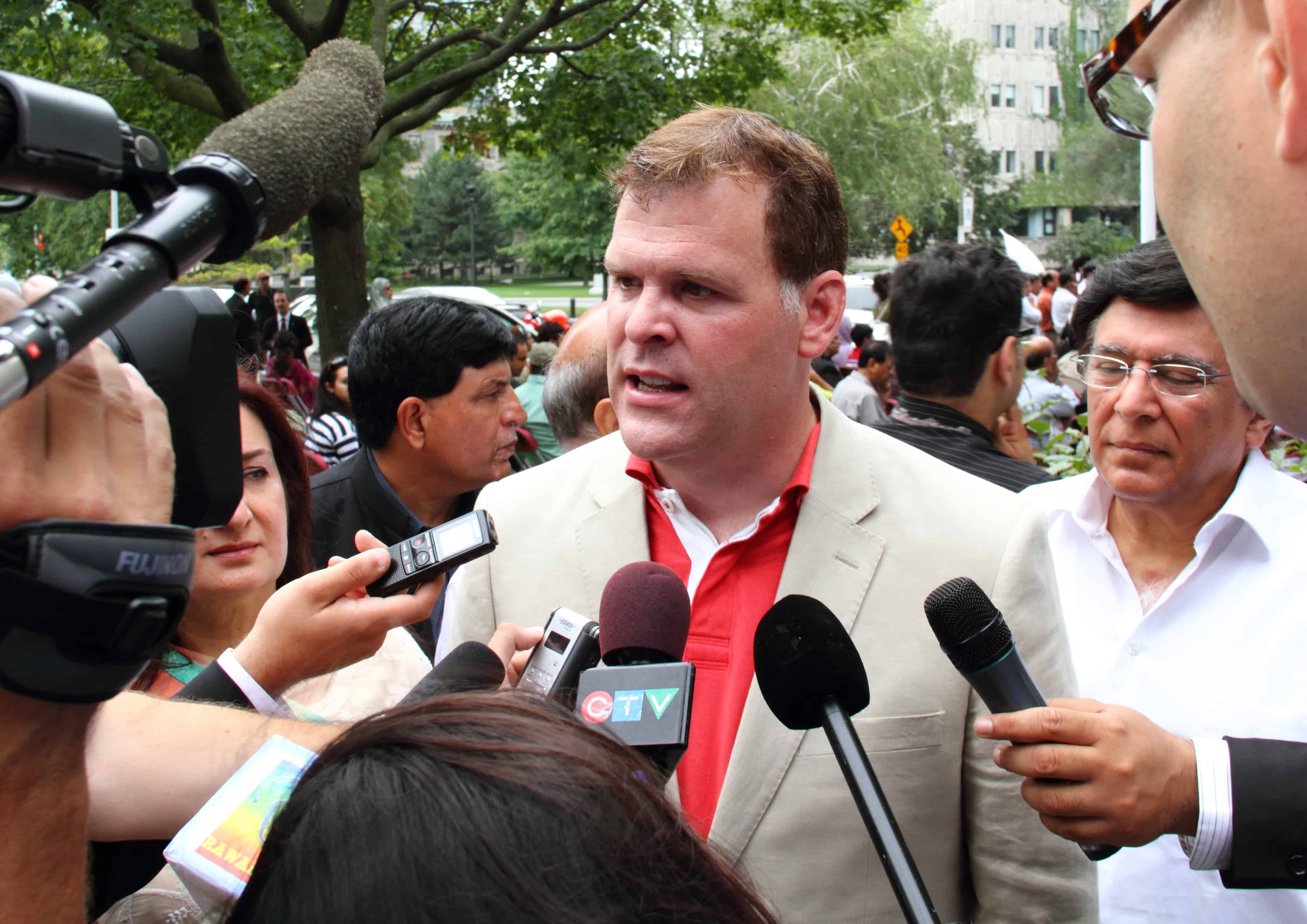On September 7, Minister of Foreign Affairs John Baird announced that Canada was officially cutting off diplomatic relations with the Islamic Republic of Iran. This came after a months-long tour of the West by Israel’s Prime Minister Benjamin Netanyahu, who spent his time touting his plans to bomb Iranian nuclear sites before the Israeli elections in late October.
While other world leaders warned Netanyahu against a violent solution to Iran’s nuclear plans, Harper stood firm with Israel. However, this meant both men would be out of step with the rest of the world’s major powers. First, British Prime Minister David Cameron said an attack on Iran would be unjustifiable; then US President Barack Obama refused to meet with Netanyahu; then Germany’s Chancellor Angela Merkel said an attack on Iran would be unnecessary and unwise; finally France’s President Francois Hollande urged Israel to pursue a diplomatic resolution to the conflict.
After being ignored, dismissed, and derided, Netanyahu, seemed to have had enough and shot back, “Those in the international community who refuse to put red lines before Iran don’t have a moral right to place a red line before Israel.” This was meant as an attack on all those in the West who thought to dictate Israel’s foreign policy.
What was the rationale behind these calls for caution? It must have seemed apparent to Cameron, Merkel, Obama, and Hollande that any strike on Iranian reactors, no matter how tactical and precise, would almost immediately erupt into a major regional conflict, which would inevitably spill into unstable neighbouring countries such as Iraq and Syria.
Similarly, in the wake of attacks on Western embassies throughout the Middle East, prompted by anger over the film The Innocence of Muslims, destabilizing violence could spread into newly democratic countries like Egypt and Libya. In effect, if Netanyahu ordered a strike on Iranian nuclear reactors, he would likely set the whole of the Middle East and north Africa on fire — again. Except this time, instead of directing their rage against oppressive authoritarian regimes at home, angry mobs would be lashing out against the West.
It must be asked then, what does Harper hope to gain from aligning himself so closely with Israel? Such a move offers few practical benefits while opening up a myriad of potential problems. It is not as if Israel would turn to other non-Western world powers for support. Russia and China both have close and productive relationships with Syria and Iran — Israel’s two great antagonists. Yet by breaking rank with the rest of the West, Harper weakens his relationships with much more important allies.
Instead, Harper has adoped a foreign policy more closely aligned with the beliefs of former British Prime Minister Tony Blair — one that seeks to antagonize those nations who do not fit into the black-and-white moral divide held by the PM. Harper did this early in his premiership, when he confronted China over human rights abuses with little result. He was chastised by the Chinese government, received no concessions on human rights reform in the People’s Republic, and threatened a fragile relationship with the world’s soon-to-be leading economy. It was a losing strategy then and it’s a losing strategy now.
By antagonizing Iran, Harper prevents the possibility for Canada to undertake constructive dialogue to prevent the weaponization of Iranian nuclear capabilities; he alienates other Western leaders; and he positions Canada as Israel’s expected ally when a full scale war inevitably results from military strikes on Iranian targets. How would such an alliance work out for Canada? When George W. Bush went to war with Iraq, he ran up billions-upon-billions in national debt, massively destabilizing the American economy; let millions of Iraqi civilians die, which stoked the flames of an al Qaeda renaissance in the country; and left the regime, while newly democratic, highly corrupt, weak, and unstable. And Bush had the world’s best-funded military, while Harper is working on a much smaller budget and is already trying to pull Canada out of a deficit. A major Middle Eastern conflict that would drag on indefinitely would leave Canada cripplingly far in the economic hole.
Harper sold himself to Canadians as a responsible, reasonable voice on the economy — if you liked nothing else about the man, you knew that he would keep your pocketbooks safe. Yet, by cutting off relations with Iran and tying Canada inevitably to any future regional conflict, Harper has lost all the credibility he once held as an economic steward. Similarly, he has jeopardized not only Canada’s role in the world, but within the West.
Throughout history, war has led to one thing: ruin. It will be no different for Canada.


